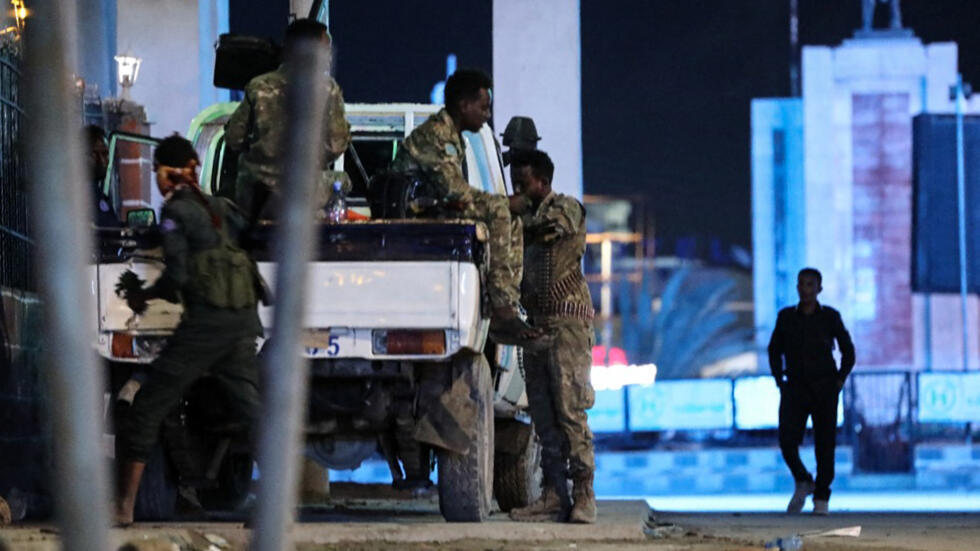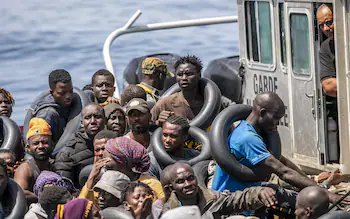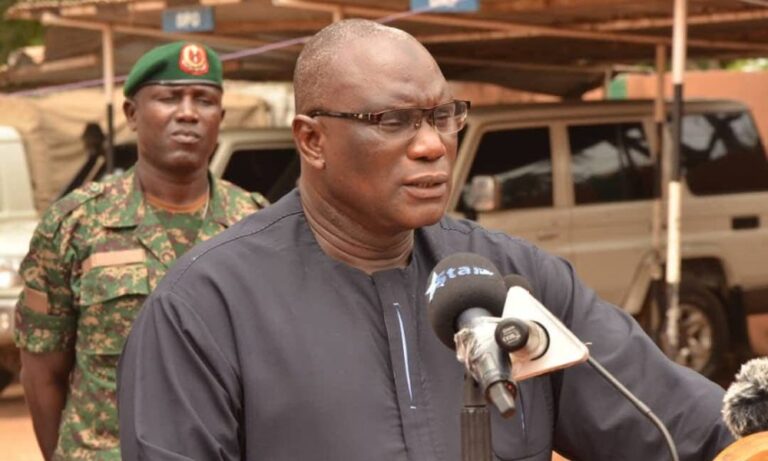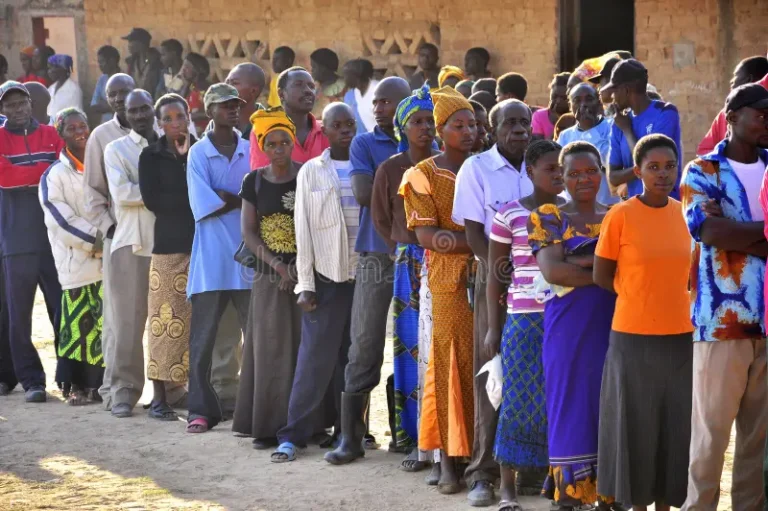Deadly mortar attack strikes Mogadishu airport amid rising security concerns

A mortar attack targeting Mogadishu’s international airport has killed two soldiers from the African Union Transition Mission in Somalia (ATMIS) and injured another, underscoring the persistent security threats facing international forces in Somalia.
The assault comes amid a tense period marked by frequent violence, raising renewed concerns over the safety of both local and foreign personnel in the country.
Mogadishu’s airport, situated in the heart of Somalia’s capital, serves as a critical site hosting both civilian operations and a significant military and diplomatic presence.
The airport complex is home to key missions from the African Union, the European Union, the United Nations, and the embassies of the United States and the United Kingdom, making it a prime target for terrorist groups.
Authorities suspect that the attack was orchestrated by Islamist militants, likely the Al-Qaeda-linked Al-Shabaab group.
Al-Shabaab has repeatedly carried out violent actions aimed at destabilizing the Somali government and disrupting international efforts in the region.
The mortar strike serves as a stark reminder that, despite years of international intervention, Somalia continues to grapple with a persistent terrorist threat.
ATMIS Faces Mounting Challenges in Somalia
The African Union’s ATMIS mission was established to replace the former AMISOM mission, with the goal of guiding Somalia toward full responsibility for its security.
Yet incidents like this one illustrate the ongoing difficulties ATMIS faces, both in maintaining security and in achieving its broader mandate.
Although security measures around the airport have been heightened, mortar attacks reveal the limitations of even robust precautions, as insurgent groups exploit the complex terrain and political instability to strike strategic targets.
Somali Government Responds to Attack
Following the attack, the Somali government swiftly condemned the assault and reiterated its commitment to targeting those responsible.
Somali President Hassan Sheikh Mohamud expressed determination to strengthen collaboration with ATMIS and international forces to tackle Al-Shabaab and secure key sites.
Mogadishu’s airport remains a focal point of geopolitical interest, as it houses numerous foreign missions.
These recent events have sparked alarm among Somalia’s international partners, including the United States and the United Kingdom, who are closely monitoring developments and fear an escalation of violence.
For these nations, Somalia’s stability is essential to regional security.
Impact on Diplomatic Operations and International Aid Efforts
The mortar attack underscores the challenges Somalia faces as it attempts to rebuild after decades of civil conflict.
Persistent insurgent activity complicates both development and governance, making it difficult to establish a stable environment for civilians and international actors alike.
Diplomatic missions located within the airport compound are particularly affected by the attack.
In light of the incident, several embassies may reconsider their security measures or restrict movements, potentially hindering vital international cooperation and aid efforts.
This heightened insecurity risks slowing Somalia’s progress toward stabilization, even as international forces and Somali officials work to counter insurgent threats.
The attack on Mogadishu’s airport plunges Somalia further into uncertainty, casting a shadow over the country’s path to peace and resilience.
About The Author
dailymailafric
I am an avid African news observer, and an active member of Daily Mail Africa.
I’m Passionate about staying informed on diverse topics across the continent,
I actively contribute to publishing on political, economic and cultural developments in Africa.



